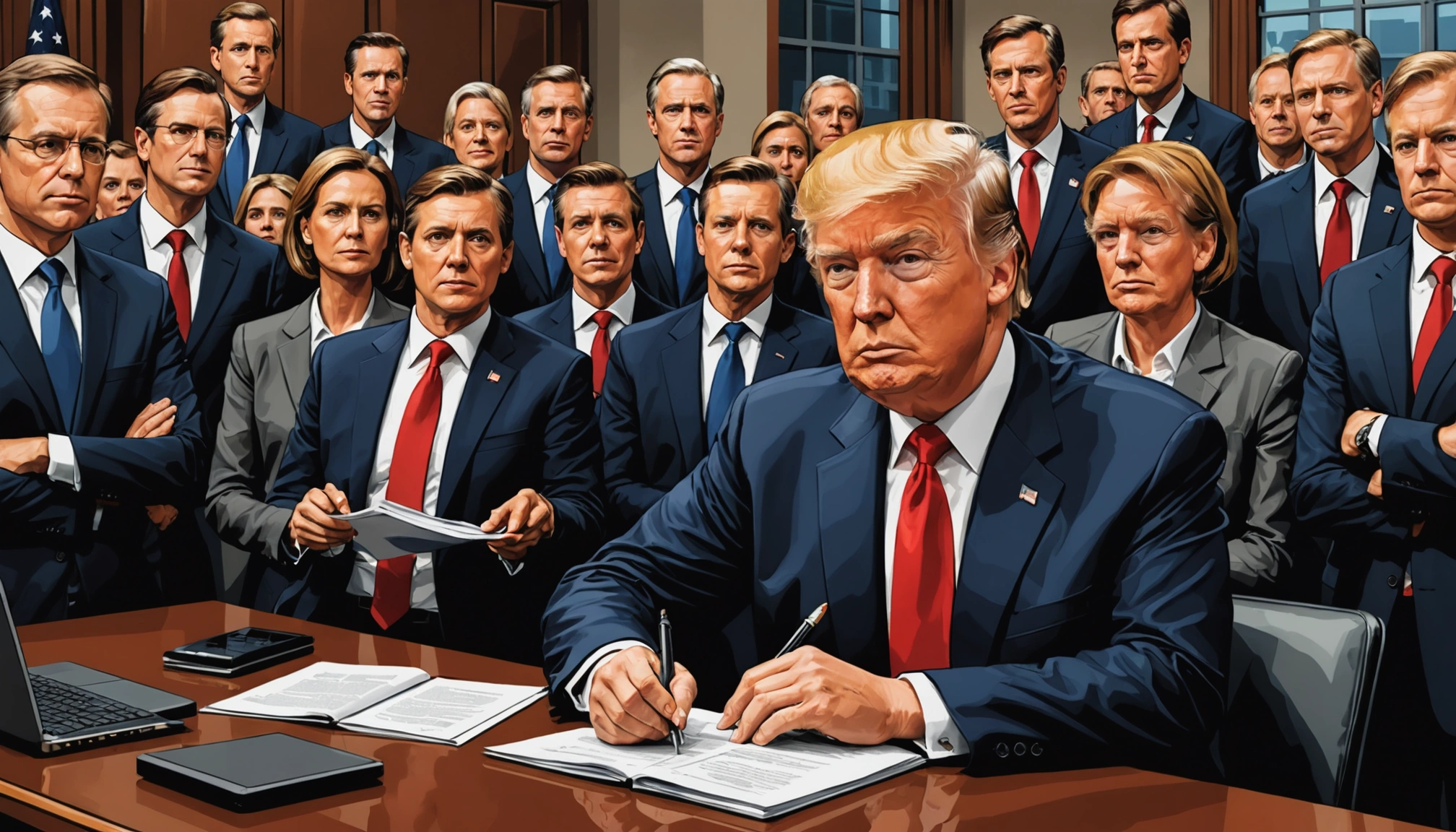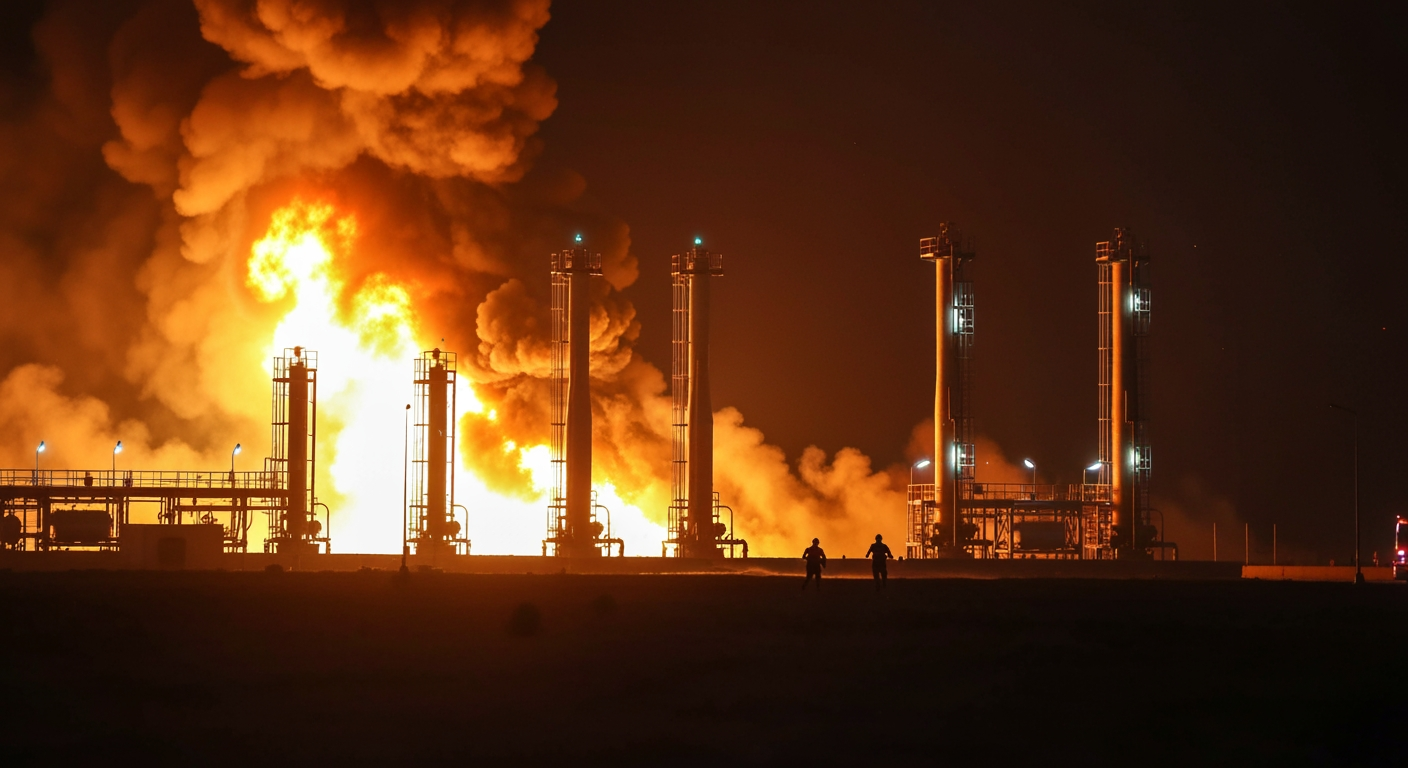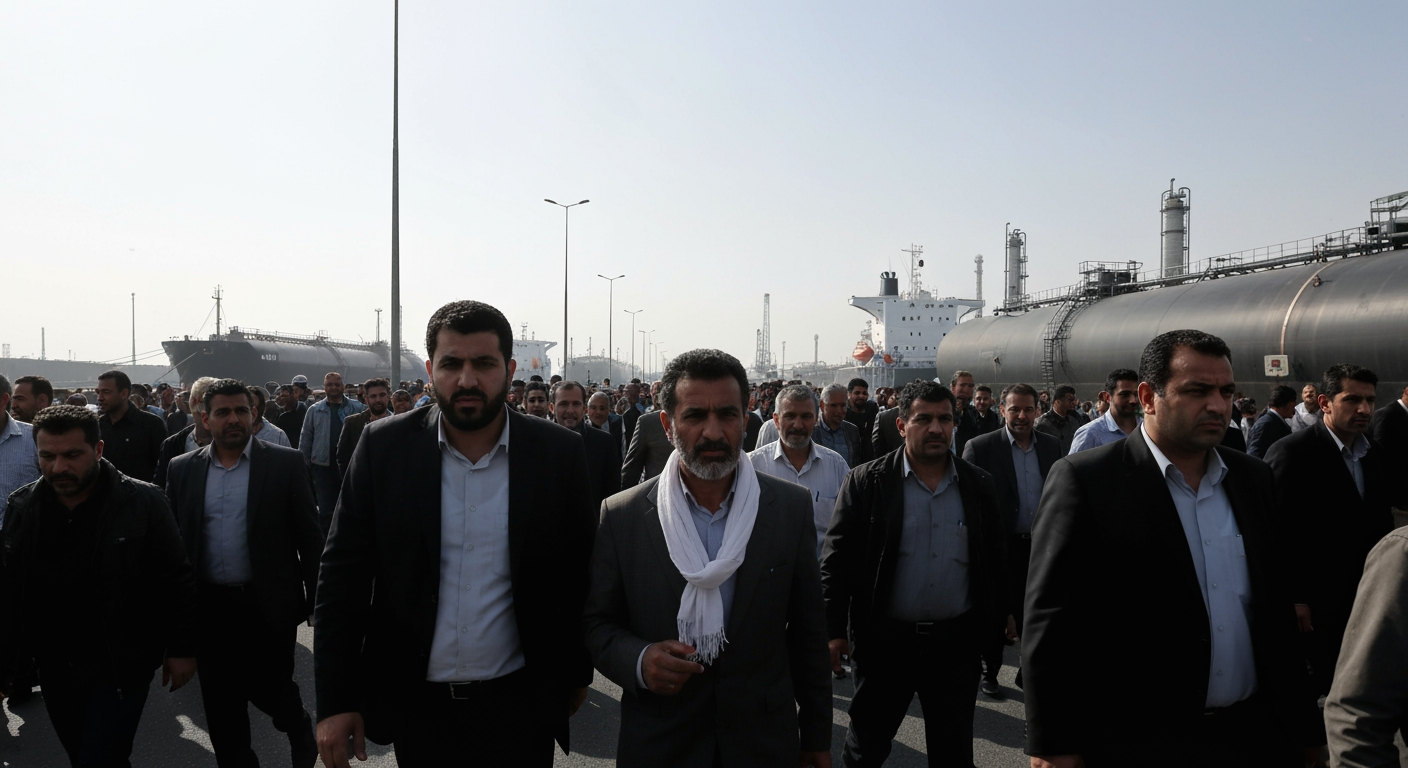Trump's Anti-Woke Policies Spark Mixed Reactions from German Firms on DEI

The resurgence of Donald Trump and his administration's staunch stance against "woke" policies, particularly Diversity, Equity, and Inclusion (DEI) initiatives, has sent ripples across the Atlantic, prompting a complex and varied response from German companies. While some firms are scaling back or rebranding their DEI programs in the face of potential repercussions in the U.S. market, others are reaffirming their commitment to diversity, signaling a "now more than ever" attitude in Germany.
US Pressure and German Concerns
Trump's return to the White House has been marked by executive orders aimed at dismantling DEI programs within federal institutions and labeling private-sector DEI initiatives as potentially unconstitutional and discriminatory. These actions have triggered concerns among foreign companies, particularly those with significant business interests in the United States, about the possibility of losing U.S. government contracts or facing obstacles in merger approvals if they do not distance themselves from DEI. The German Chamber of Commerce and Industry (DIHK) has reported that multiple German companies have received letters from the U.S. embassy regarding this issue, adding to the pressure.
Companies Scaling Back
In response to these pressures, some major German companies have started to adjust their DEI strategies, especially concerning their operations within the United States. Software giant SAP, for instance, has rolled back several of its diversity and inclusion measures to comply with the Trump administration's policies. This includes dropping its target of having 40% female employees and ceasing to consider gender diversity as a factor for executive compensation in the U.S. Similarly, Deutsche Telekom's U.S. subsidiary, T-Mobile, has also committed to largely abandoning its DEI measures. Automaker Volkswagen (VW) and telecom giant Deutsche Telekom have announced plans to either scale back or end their diversity initiatives in the U.S.
Commitment to Diversity Remains Strong
Despite these adjustments, many German companies remain committed to diversity and inclusion, particularly within their German and European operations. A flash survey conducted by Charta der Vielfalt (Charter of Diversity), Germany's largest employer initiative committed to DEI goals, revealed that approximately 90% of the 100 companies polled intended to continue their DEI programs unchanged. Cawa Younosi, managing director of the initiative, noted that over 800 companies have signaled their intention to sign the charter, a record number. Major companies like BMW and Henkel have stated they are closely monitoring the situation but have not announced any plans to alter their DEI efforts. Engineering conglomerate Siemens, for example, stated there is currently "no need to change our efforts toward diverse teams and an inclusive work environment due to recent developments."
Legal and Cultural Context in Germany
The continued commitment to DEI in Germany is underpinned by a strong legal and cultural framework that supports diversity and inclusion. Germany has several key laws that promote equality and prohibit discrimination, including:
- The General Act on Equal Treatment (AGG): Enacted in 2006, this law prohibits discrimination based on race, ethnic origin, gender, religion or belief, disability, age, or sexual orientation in employment and other areas.
- The Transparency in Wage Structures Act (Entgelttransparenzgesetz): Effective since 2017, this law aims to address gender pay gaps by granting employees the right to information about pay practices.
- The Corporate Due Diligence in Supply Chains Act (Lieferkettensorgfaltspflichtengesetz): This legislation, which came into force in 2023, requires companies to ensure that human rights, including non-discrimination and equality, are respected along their supply chains.
Furthermore, German corporate law mandates gender diversity quotas for supervisory boards and requires establishing gender diversity targets for executive boards and management levels.
Rebranding and Reorganizing
Some companies are opting to rebrand or reorganize their DEI programs rather than eliminate them altogether. This approach allows them to maintain their commitment to diversity and inclusion while mitigating potential risks associated with the term "DEI" in the U.S. market. Michael Eger, a partner at German consultancy Mercer Deutschland, has observed that while companies may change how they communicate, "their core attitudes and actions largely remain the same."
The "Anti-Woke" Movement in Europe
While the primary impetus for changes in DEI policies among German firms stems from U.S. political pressure, the "anti-woke" movement is also gaining traction in Europe. In Germany, discussions about "woke" have focused on concerns regarding immigration and national identity, with far-right parties like the Alternative for Germany (AfD) employing "anti-woke" rhetoric to advocate a return to traditional values. However, the German government and many leading industry groups have pushed back against what they see as overreach by the U.S. government, emphasizing that German companies should be able to decide for themselves whether or not to react to requests made by the U.S. Embassy.
A Divided Path Forward
The impact of Trump's anti-woke push on German firms' DEI policies is multifaceted. While some companies are scaling back or rebranding their programs in response to U.S. political pressure, many others are reaffirming their commitment to diversity and inclusion, driven by legal requirements, cultural values, and a belief that DEI is essential for business success. This divergence highlights the complex challenges that multinational companies face in navigating differing political and social landscapes while trying to maintain their core values and business objectives. The future of DEI in German companies will likely depend on the evolving political climate in both the United States and Europe, as well as the continued advocacy and resistance from those who believe in the importance of diversity, equity, and inclusion.
Related Articles

Escalation in Persian Gulf Triggers Global Energy Crisis as Iran Targets Key Oil and Gas Sites
DUBAI, UAE – A dangerous new chapter has unfolded in the Persian Gulf, as a rapid escalation of tensions has seen Iran launch a barrage of drone and missile attacks against critical oil and gas infrastructure across multiple Gulf states, sending shockwaves through global energy markets and raising fears of a broader regional conflict. These widespread assaults, described by some as retaliatory following recent U.S.-Israeli strikes on Iran, have disrupted vital shipping lanes, crippled production facilities, and ignited an urgent international debate over energy security and regional stability. The concerted attacks, which began in late February and intensified through early March 2026, have marked a significant shift in regional dynamics

Global Oil Markets Brace for Turbulence as Iran Conflict Threatens $100-a-Barrel Threshold
LONDON - Global oil markets are teetering on the brink of significant upheaval following recent escalations in the Middle East, raising concerns that crude prices could surge past $100 per barrel. The immediate aftermath of reported US-Israeli strikes on Iran and subsequent retaliatory actions by Tehran has already sent shockwaves through energy trading, with analysts warning that prolonged conflict, particularly any disruption to the vital Strait of Hormuz, could trigger a substantial and sustained price rally, impacting economies worldwide. On Friday, Brent crude futures were trading around $72.48 to $73 per barrel, while West Texas Intermediate (WTI) crude oil prices stood at approximately $67 per barrel

Russia's Enduring Nuclear Grip: A Geopolitical Lever Beyond Oil and Gas
While global attention frequently fixates on Russia's vast oil and gas reserves as instruments of geopolitical influence, a quieter, yet equally potent, form of leverage persists within its nuclear energy sector. Through its state-owned atomic energy corporation, Rosatom, Russia has cultivated deep-seated dependencies across the world, extending far beyond fossil fuel exports